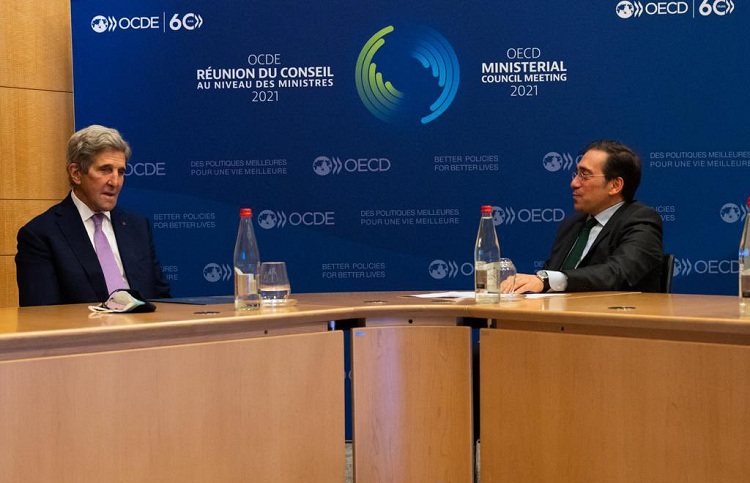The Diplomat
The Minister of Foreign Affairs, José Manuel Albares, held a bilateral meeting yesterday in Paris with the White House Special Climate Envoy, John Kerry, on the margins of the Ministerial Council of the Organization for Economic Cooperation and Development (OECD).
“Before speaking at the OECD Ministerial I met with John Kerry, US special envoy for Climate,” the minister stated via his Twitter account. “We talked about the upcoming COP26 and the role of Spain, the US and the European Union in the fight against climate change,” he added. In statements to the Efe news agency, Albares specified that the bilateral appointment took place at Kerry’s request.
“This is a new meeting that reinforces and demonstrates the enormous harmony that exists at this time between Spain and the United States at all levels,” he added. This is Albares’ first meeting with a high-ranking U.S. official since he took office last July. To date, the minister has had a couple of telephone conversations with Secretary of State Anthony Blinken, the last of which took place in early September to address the situation in Afghanistan.
In his subsequent speech to the Ministerial Council, Albares reiterated Spain’s “commitment” to the OECD, of which it “has been a member for many, many years,” to challenges such as “the fight against climate change, the digital transition and a just green transition.” “In short, with all these common values and, of course, with the traditional ones: democracy and human rights,” added the minister, who announced that “Spain clearly supports” the OECD membership of Latin American countries and of “the member countries of the European Union that are applying for it.”
The Ministerial Conference, which is held annually and whose rotating presidency is held by the United States, will conclude today with the approval of a declaration in defense of the “three elements” on which the OECD is based: constitutional democracy, open markets and respect for individual freedoms and human rights. The text has been interpreted as an attempt by the U.S. government to transfer to the organization its new policy of containment against China, a country that does not belong to the OECD but participates as an observer.
In addition, the conference marks the first presence of a senior US government official – namely Anthony Blinken, who met yesterday with French Foreign Minister Jean-Yves Le Drian – in Paris since the formation of the US-UK-Australia (AUKUS) alliance that led to the termination of the Australian contract for the construction of submarines using French technology, a situation that has strained relations between Paris and Washington.
The meeting also coincides with the generalized increase in the prices of energy, raw materials and international shipping, which could affect the economic recovery after the pandemic (the OECD itself warned on September 21 that the recovery will be “uneven”), and with the international debates on the creation of a new fiscal framework based on taxes on large companies and the setting of a minimum corporate tax of 15%.






